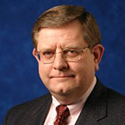By Jeff Brumley
A new survey confirms a shift in American attitudes toward faith that should motivate churches to rethink how — and for whom — they do ministry, Baptist and other experts say.
The Barna Group study found that most Americans rank family first in determining their self-identity. In second place is country followed by “religious faith” in third place.
The survey findings may not be a shock to some, given the high-profile decline of church attendance and subsequent rise of the religiously unaffiliated in the United States. But those who track such trends say churches must use this and other data as the motivation to act creatively.
“It’s important that they think through ways that they can define community in different ways,” said Roxanne Stone, a Barna Group vice president and the designer and analyst of the American self-identity study that was released March 19.
‘Institutional aversion’
Only 28 percent of Millennials said religious faith is a part of their identity, according to the study. That’s compared to 45 percent of Boomers and 46 percent of Elders.
But Stone told Baptist News Global that churches needn’t beat themselves up about those numbers.

“Millennials leaving churches are part of a larger trend of younger generations leaving institutions in general, and feeling very skeptical about institutional activities and communities,” Stone said. “They don’t want to identify with those things.”
One big surprise in the survey was how the numbers of those identifying themselves as non-practicing Christians fit into the self-identification rankings.
“What should be very alarming to the church is that particular category is the second least likely to say their faith makes up a big part of their identity,” she said. “The only group more likely is people with no faith.”
But it could also open up a new field of evangelism focused exclusively on Christians who no longer attend church or think of themselves as believers, Stone said.
“That’s a growing segment of the American population,” she said.
Church not the focus
Congregational coach George Bullard sees plenty of actionable information for churches in the Barna study, too.
The centrality of family uncovered by the poll should tell churches it’s past time to reorient ministry structures, said Bullard, president of the South Carolina-based Columbia Partnership and general secretary of the North American Baptist Fellowship.
One approach would be to abolish traditional age-level programming in favor of ministries — and ministers — focused on families or households, he said.
Gradations could still be general, which programming for young adult households, medium adult households and empty nesters, Bullard said.
“The church claims that family is a high priority for it and believes that right up until they walk in the door and splits them into smithereens,” he said.
The third-place enjoyed by religious belief in the Barna survey confirms that churches must get outside their buildings and comfort zones to engage those who aren’t coming through the sanctuary doors, Bullard added.

“We don’t encounter them in the church, but in the community — they’re not interested in coming to a church,” Bullard said.
Christians must also change the way they speak to the unchurched.
People aren’t worried about their salvation as much as they are about their finances, work-related ethical issues and children’s education.
“The first thing that people want to talk about is not faith,” he said. “They want to talk about family issues and security issues and their country and maybe even political issues.”
Those conversations can be facilitated by hosting seminars, Bullard said.
“If you have a seminar on financial planning, you need to do it out in the community,” he said. “They will not be as interested if it’s held in the church or if you advertise it as a Christian program.”
It all boils down to the church recognizing the agendas of the people it’s trying to reach, instead of trying to interest them in the church’s agenda, Bullard said.
It’s as if the survey respondents are saying “’if I see my life and my family … first, and you want to engage me, then you’re going to have to engage me where my life and family are,’” Bullard said. “And that’s not church.”
God not a category
But in some parts of the country, it’s not an either-or issue, said Barry Howard, the senior minister at First Baptist Church in Pensacola, Fla.
Howard said he would be surprised if more people in Pensacola bucked the trend given the strong Navy presence in the city and its setting in Florida’s always conservative panhandle.

“I do think there are regions where they would still put ‘God, family and country,’ and this is one of them,” Howard said.
But even that can be unhealthy if faith doesn’t have its proper perspective. Even too much church can be unhealthy for families if parents spend too much time away from their spouses and children.
“As a pastor, I remind people that God isn’t one of the categories,” he said. “God is over family and country and God is integrated into every dimension of life.”
